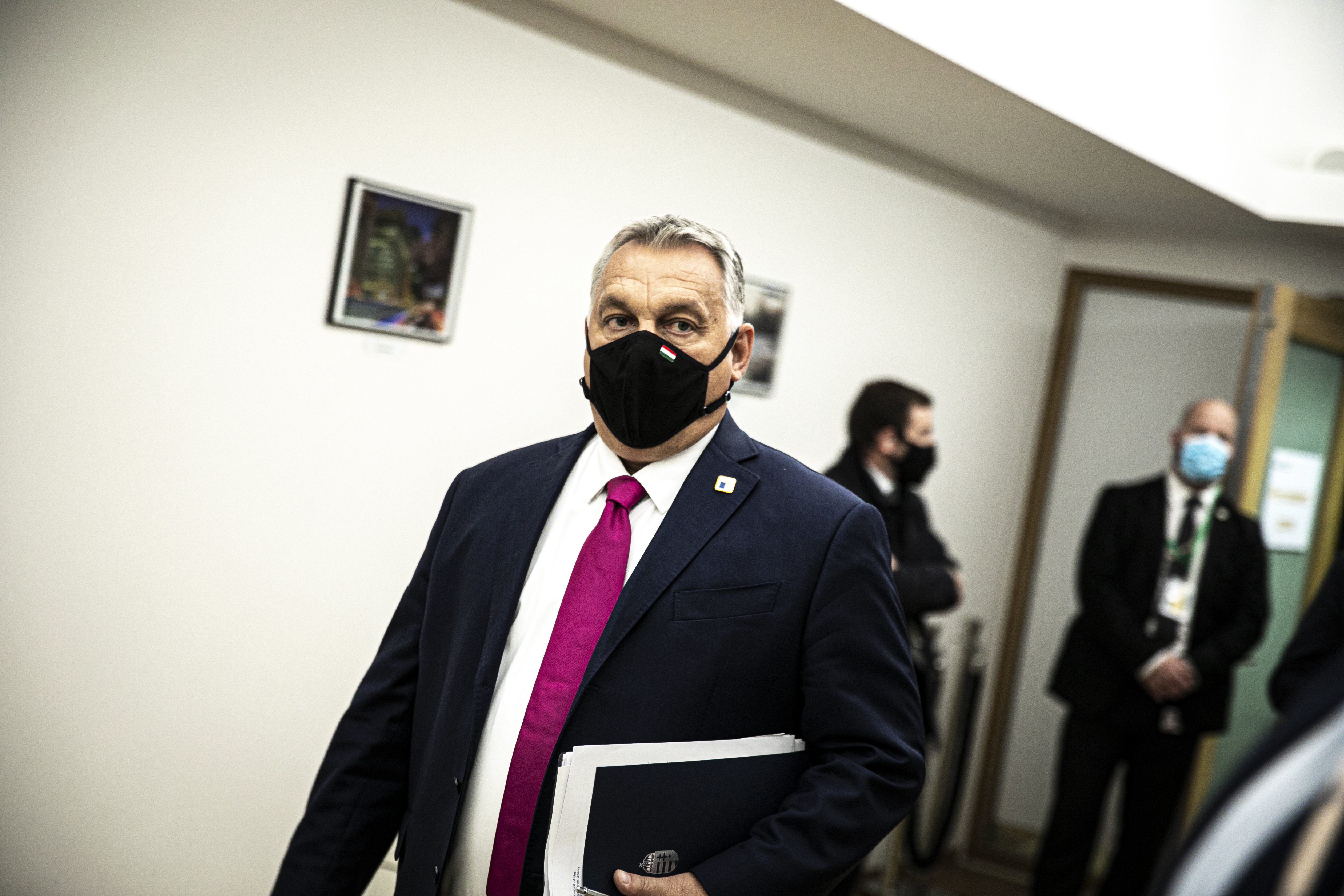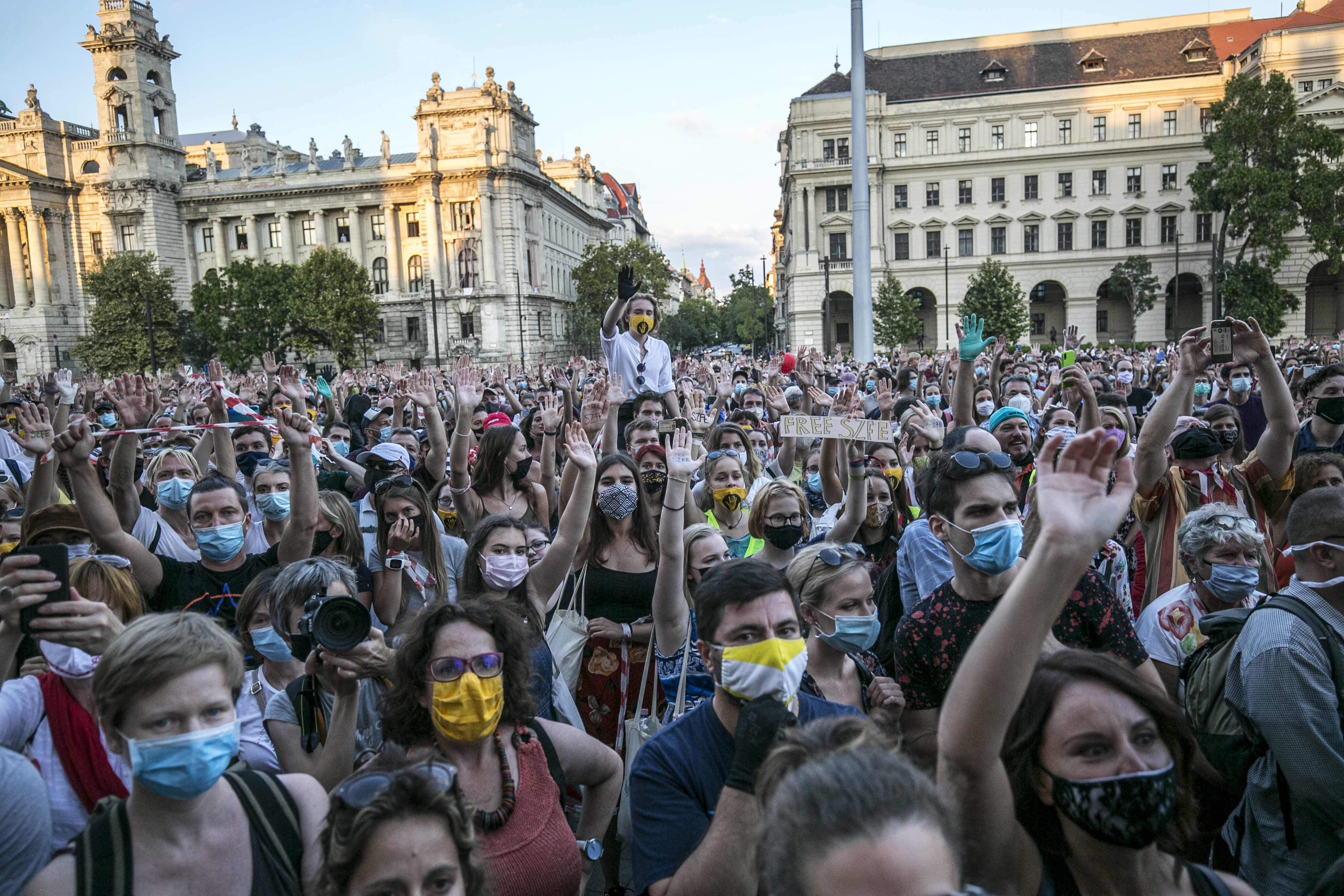Hungary's Foreign Minister attacks Joe Biden, accusing him of corruption
- Stay updated on the latest news from Hungary by signing up for the free InsightHungary newsletter:
Foreign Minister Péter Szijjártó addressed American presidential candidate Joe Biden in a video to social media Saturday, chiding the Democratic politician for comments he made at a town hall event last week suggesting Hungary was a "totalitarian regime".
In the video, Szijjártó called Biden's words "unfair and unworthy," and urged him to address recent unconfirmed allegations that Biden's son benefitted from his previous status as the U.S. vice president to secure a well-paid position on the board of a Ukrainian energy company.
"You see what's happening in everything from Belarus to Poland to Hungary and the rise of totalitarian regimes in the world and this president embraces all the thugs in the world," said @JoeBiden at his town hall event last night pic.twitter.com/Ix8R8bhQNc
— Notes from Poland 🇵🇱 (@notesfrompoland) October 16, 2020
"It would be good if Joe Biden would answer some questions that have been hanging in the air for some time before he begins dealing with Central Europe again," Szijjártó said, suggesting that Biden had used his political influence as vice president to further his son's corrupt business dealings.
Szijjártó also demanded answers for "why [Biden] put pressure on the Ukrainian government...so that it would dismiss the Ukrainian chief prosecutor," referencing a theory embraced by U.S. President Donald Trump that Biden forced the firing of the prosecutor in order to bring an end to corruption investigations involving the company where his son worked.
The foreign minister also condemned Biden's time spent as vice president in the Obama administration, saying it had placed Central Europe under "constant accusations and attacks," and that members of the United States' foreign mission in Hungary had expressed "extremely one-sided, politically biased opinions" to attack the government and support the opposition.
The minister's rebuke reflects the governing party's belief that Trump will win U.S. elections on November 3. Prime Minister Viktor endorsed Trump in September, and in an interview expressed his optimism that Trump would be re-elected, saying he had "no plan B".
Szijjártó's allegations of corruption came after he was photographed in August vacationing aboard a luxury yacht owned by an oligarch that is a frequent beneficiary of lucrative government contracts. Szijjártó refused to answer questions related to whether he had paid for use of the yacht or received it as a gift, insisting it was a "private matter".
Hungary could be at Czechia's heels as coronavirus deaths break records
Coronavirus-related deaths continue to rise rapidly in Hungary as a record 48 people died of the virus on Wednesday and 46 on Thursday. More Hungarians have died since September 28 than during the entire period of the pandemic up to that point, and those being treated in hospital rose to 2,023, doubling the highest number from the spring's first wave.
Daily coronavirus deaths and total cumulative coronavirus deaths
Despite deteriorating conditions, the Hungarian government has not introduced any major new restrictions to contain the virus, even as its neighbors in the region impose strict measures.
On September 26, Viktor Orbán told TV2 that he "doesn't really understand Czechia, where conditions have gone wild and the numbers are somehow out of control." At that time, Czechia had 1,976 new daily cases and ten deaths (numbers for which the Czech health minister resigned), far fewer than the number of daily deaths registered in Hungary for the last two weeks.
With the exception of the decision to close Hungary's borders to most foreign travellers (with an allowance for citizens of Czechia, Slovakia and Poland) and the closure of bars and restaurants at 11 p.m., the government has taken none of the measures imposed by neighboring countries to slow the spread of the virus. In Czechia, Slovakia, Poland and Slovenia, national governments have:
- closed theatres, cinemas, restaurants and spas, and banned mass gatherings
- initiated digital education in schools
- closed sporting events to spectators
- introduced mandatory mask-wearing in public areas, instituted curfews, and limited the size of social gatherings to 6-10 people
Czechia, where the pandemic situation is among the worst in Europe, has closed schools, restaurants and clubs and suspended cultural and sporting events. The country also ordered all non-essential shops and services to close until November 1, and has requested the assistance of foreign doctors and nurses in its overburdened hospitals.
The number of weekly deaths in Czechia was at Hungary's current levels during the first week of October, and has since risen to as many as 100 per day, suggesting Hungary could be around two weeks behind the country if no additional action is taken.
Speaking in Parliament on Monday, Orbán told opposition MPs that their criticisms of the government's pandemic policy amounted to "attacking the epidemiological experts and doctors" that advise the government.
But the government's advisers have routinely called for additional restrictions and an increase in testing. A permanent board of healthcare professionals urged a tightening of restrictions in mid-August, but Orbán refused. The head of the government's coronavirus research group, virologist Dr. Ferenc Jakab, has consistently warned that failing to impose more serious prevention measures would result in drastic increases in infections and deaths.
Speaking to 444's Dániel Pál Rényi, an analyst at a government-tied think tank described the relationship between the government and epidemiological experts as having become "cynical" in recent weeks, and politicians are said to have begun ignoring scientists during meetings of the Emergency Task Force, causing tensions.
In his speech opening Parliament's autumn session, Orbán said, "Who believes doctors and mathematicians and how much is a matter of taste," referring to worst-case-scenario projections by the government's own epidemiological advisors.
Investigation launched over Chinese company gathering data on Orbán, other leading politicians
A Chinese company with connections to the Chinese government gathered data on hundreds of Hungarians, including Prime Minister Viktor Orbán, one of his daughters, previous Hungarian prime ministers, and leading Fidesz and opposition politicians and their families, Szabad Európa reports.
The database, which leaked in September, contains mostly publicly-available data on around 2.5 million people worldwide, of which around 10 percent could be analyzed by an Australian company. Of those 250,000 names, more than 700 are Hungarians, including two dozen current politicians including Viktor Orbán, Justice Minister Judit Varga, Fidesz national party director Gábor Kubatov, Fidesz communications director István Hollik, Jobbik MEP Márton Gyöngyösi, MSZP co-chair Ágnes Kunhalmi, MSZP party director and member of the national security committee Zsolt Molnár, as well as several current and former diplomats, current and former heads of state companies and institutions, and others.
RTL Klub reports that police have launched an investigation into the data collection, and the National Bureau of Investigations has begun a procedure over misuse of personal data. Military intelligence will report on the matter before the National Security Committee on Tuesday.
Telex reports that while there is no proof the Chinese company was working directly for the state, it may have been collecting the data in an attempt to sell it to the Chinese government and intelligence services.
October 23 celebrations cancelled, protests scheduled
Official celebrations of the 64th anniversary of the 1956 Hungarian Revolution on Friday will be limited to a ceremonial flag-raising on Kossuth Square in Budapest and the awarding of state honors. Citing coronavirus concerns, the government has asked state bodies and local governments to avoid holding mass gatherings.
Two protests will be held on the national holiday, including a march organized by students of the University of Film and Theatre Arts (SzFE), who have occupied the university since late August in protest of government-imposed changes to its leadership structure. The march will begin on the Műegyetem Rakpart on the Danube and proceed across Szabadság Bridge to the SzFE campus on Vas Street.
A blockade of the headquarters of state media conglomerate MTVA, proposed in September by independent politicians Bernadett Szél and Ákos Hadházy, is also planned for the national holiday. The MPs initially hoped for 100,000 participants at the protest, where they said they would demand the abolition of paid government advertisements in media and the appointment of an MTVA chairperson suitable to the opposition.
But ATV reports that none of the opposition parties plan to officially participate in the demonstration, with some referring to coronavirus concerns and others saying they plan to attend the SzFE march.




